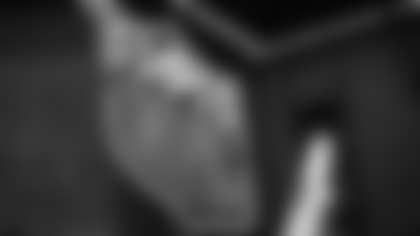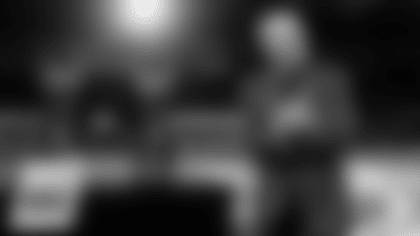Jim Fassel will always own an important niche in Giants history. The team's head coach from 1997-2003, his tenure was marked by a dizzying collection of successes and shortcomings. Fassel's 58 career regular-season victories are the fourth-highest total among the 16 coaches in the 90-year history of the franchise. He was named NFL Coach of the Year after his first season and led the Giants to three playoff berths, including a Super Bowl. But each postseason ended in disaster.
On Dec. 17, 2003, with two games remaining in what became a 4-12 season, Fassel announced he would resign after the season, knowing he would almost certainly have been fired had he not been proactive. For a while his post-Giants life followed the same up-and-down prototype he had established in East Rutherford. It was widely assumed Fassel would soon secure another head coaching job, but several interviews failed to produce an offer. He divorced his wife of 35 years, Kitty, with whom he had five children (including an adopted son they relinquished at birth and met for the first time decades later, when he was coaching the Giants).
But today, Jim Fassel is anything but bitter and unhappy. He was the head coach, general manager, and president of the Las Vegas Locomotives of the now-defunct United Football League, but never did get another chance to lead an NFL team, an omission that neither defines nor drives him. Kitty and he have remarried and derive great joy from spending time with their 10 grandchildren, including eight girls. The Fassels split their time between homes in Henderson, Nev. and Manhattan Beach, Calif., where they can walk out their front door and stand in the Pacific Ocean in five minutes. Fassel, 65, is tanned, fit and relaxed, the embodiment of the laid-back Southern California area where he grew up.
|
|
 |
|
|
For 30 years, Fassel coached at the collegiate and professional levels. He was the head coach at the University of Utah from 1985-89 and he coached in four different professional leagues (the World Football League, United States Football League, NFL and UFL). Fassel coached Pro Football Hall of Famer John Elway as an offensive coordinator at Stanford and with the Denver Broncos and he also had NFL stints with the Oakland Raiders and Arizona Cardinals. But it is his seven seasons with the Giants that Fassel most treasures.
"It was a great time, a great time," Fassel said. "People ask me, 'Wasn't the media awful to you?' No, I'm friends with a lot of them. I respect the media. They have a job to do. I'll tell you what, I was with (five) different franchises (including Baltimore, where he served as an assistant post-Giants), but the Giants is how I learned to coach in the NFL, mainly from (former general manager) George Young. They run it right. They put the marbles in a row to win."
The marbles were out of whack during the last two years of Dan Reeves' term as coach in 1995-96. While winning just 11 games in those two seasons, the Giants finished 29th and 30th in total yardage and 24th and 28th in points scored. Young had been impressed with Fassel during his stint as the Giants' offensive coordinator in 1991-92 and reached out to him to resurrect the team and specifically the offense.
Fassel's first Giants team started 1-3 – including a 27-point loss to Tom Coughlin's Jacksonville Jaguars – before winning five consecutive games. The team hit its stride after rookie Danny Kanell replaced Dave Brown at quarterback and won the NFC East title with a 10-5-1 record. That included a 7-0-1 mark against Arizona, Dallas, Philadelphia and Washington, the only time in their history the Giants did not lose a division game.
"I was nervous before the season," Fassel said. "We were the only team in the NFL unanimously picked last in their division. Well, we ended up 10-5-1, the first team to go undefeated in the NFC East. How did we do it? We had a plus-25 turnover ratio, we were very stingy with the ball, we led the league in 10-play drives, but we weren't a high-scoring team. We just hogged the ball. Our defense got turnovers, we didn't turn the ball over and we let other teams beat themselves. That's still a formula that wins today."
The final chapter in the Giants' storybook season was dispiriting. Hosting the Minnesota Vikings in an NFC Wild Card Game, the Giants owned a 19-3 halftime lead and a nine-point advantage lead with less than two minutes to play. Minnesota quarterback Randall Cunningham threw a 30-yard touchdown pass to Jake Reed with 1:30 remaining. The ensuing onside kick bounced off Giants wide receiver Chris Calloway and into the hands of Minnesota's Chris Walsh. In rapid success, Cunningham completed a third-down pass to Cris Carter, Phillippi Sparks was penalized for pass interference and Robert Smith ran 16 yards up the middle to the Giants' five-yard line. That set up Eddie Murray's game-winning 24-yard field goal with just 10 ticks left on the clock.
"It was tough," Fassel said. "I had tougher losses than that, but that one hurt. And the thing is, they onside kicked and had to get the ball to have any chance. If you said, 'I hope they kick the ball to one guy, it would be Chris Calloway. He missed it. That's what sports are about. As hurtful as some losses are in coaching, it's why they play the game. That's why people like to watch, because you don't know how the ball is going to bounce. You don't know for sure who's going to win. But I couldn't get that out of my stomach for a long time."
After his debut season, Fassel was honored with at least 11 Coach of the Year awards.
"You don't get coach of the year for winning a Super Bowl," Fassel said. "You get the coach of the year because everybody's thinking you have a bad football team and you win. We were fortunate. It was more of an organizational thing. I didn't do that by myself. The head coach will take most all the blame and get most of the credit. I guess that's the way it is. But my coaches did a good job, George did a great job getting us personnel."
|
|
 |
|
|
The Giants couldn't capitalize on the their surprising season and finished out of the playoffs the next two seasons, with records of 8-8 in 1998 and 7-9 in 1999. The highlight of those two seasons occurred on Dec. 13, 1998, when the Giants upset the defending champion, 13-0 Denver Broncos, 20-16, on Kent Graham's 37-yard touchdown pass to Amani Toomer with 48 seconds remaining.
Fassel clearly recalls calling the play.
"You mean trips right, 24 double go, crazy, Rodger?" he said. "I've still got that one in my mind. I told Kent, 'Don't read the coverage, throw it to Amani.' The secret to it was I needed to get four wide receivers on the field. Then they would have a dime coverage and I knew the guy I wanted to pick on (cornerback Tito Paul). That's why I just told him to throw it to Amani. I don't care what the coverage is, that's the corner we wanted to go after."
Aside from that game, the Giants had few highlights in 1998-99.
"I think the mistake that probably all of us made after that first year when there was such a turnaround," Fassel said, "we still weren't ready personnel-wise to go against some really good teams and beat them."
After those two seasons, rumors surfaced for the first time that Fassel was on the hot seat and that he had to reach postseason play in 2000 to keep his job.
He did better than that, leading the Giants to the NFC's No. 1 seed with a 12-4 record, a 41-0 demolition of Minnesota in the conference championship game and a berth in Super Bowl XXXV. But what an unlikely and memorable journey it was.
On November 12 and 19, the Giants lost home games to St. Louis and Detroit to fall to 7-4. With three of their final five games on the road, the Giants looked to be in trouble and the pressure on Fassel ratcheted up. No one could have predicted how Fassel would respond.
Three days after the loss to the Lions, Fassel delivered an unforgettable performance at what was normally a pro forma news conference.
"This team is going to the playoffs," he declared to a room full of stunned reporters. "I believe in my players, I believe in my coaches and I believe in myself. I have a lot of confidence in myself. I have a lot of confidence in my coaches and I have a lot of confidence in the players and I have no fear. I came into this season, with a lots of people wondering if I was worried in my job. I'm not worried about it, I'm not worried about the pressure. I've got no worries. I've got no fear. None. Zero. Count on it."
The Giants responded in their next game by routing the Cardinals in Arizona, 31-7. The following week they edged Washington, 9-7, to take control of the NFC East race. After Fassel's declaration, the Giants won their final five regular-season games to finish 12-4 and earn the No. 1 seed in the conference playoffs. After defeating Philadelphia, the Giants annihilated Minnesota to the NFC Championship Game.
"Without a doubt, in a big game, that was by far the best one of my teams ever played," Fassel said.
The Vikings had scored 397 points that season – 69 more than the Giants, so the conventional wisdom entering the game was the Giants had to use their ground game to dominate the time of possession and keep Randy Moss and Co. off the field. Each time he met the media, Fassel agreed – publicly. But privately he had other ideas.
"I've always been an offensive coordinator and I always want to score as many points as we can," Fassel said. The weakest part of their defense was the secondary and we felt like we could block them up front. We thought they were pretty good against the run, so I just fed into what the media was creating - we have to run the clock and keep their offense off the field. To a fan that's what you do. As a coach - no, no, no. There's a little deeper thinking going on. I think they bought into that fact that we were going to run the ball on them. They were working on it all week. We just attacked that secondary, gave Kerry (Collins) all kinds of help and everything was turning up roses for us."
|
|
 |
|
|
So did it all happen because of Fassel's guarantee?
"I needed to take control of the situation with the media, because they were going to control the thoughts of everybody," Fassel said. "I thought, 'I can't let the media control the thought of everything. I am in charge of this. I said, 'I want you to get off my players' backs, I want you to get off my coaches' backs. If you don't like it then I'm the man to target. Leave those people alone.' People think I rehearsed what I was going to say. I absolutely did not. I didn't know what I was going to say."
Unfortunately, nothing good could be said about Super Bowl XXXV. The Giants fell into a 17-0 hole, Collins threw four interceptions and the end result was a crushing 34-7 loss to the Baltimore Ravens.
"It was the best defense I ever coached against," Fassel said. "We had a hard time blocking them, even running routes on them. They had a bunch of guys in their prime on that defensive unit. I remember talking to Jon Gruden (whose Raiders had lost to Baltimore in the AFC Championship Game). He said, 'Jim, what they look like on tape, they're 10 times better than that.'"
In 2001, the Giants lost five of their last seven games and slumped to 7-9. But football was only part of the job that season for Fassel, who was at the forefront of the Giants' efforts to help New York recover from the 9/11 terrorist attacks.
"(Former Mayor Rudy) Giuliani's office asked me if I would come over and just walk around and shake the hands and tell them that we're supporting all these guys," Fassel said. "I went over there three or four days afterward and it was unbelievable. You're standing there and this space is just wide open. I asked them, 'What am I going to do?' They said, 'You can cheer them up. People recognize you, you can just support them.' So I did. And it did work. That's how I first got involved with some firemen. Even the ones from out-of-state, mainly some from California recognized me and I stopped and talked to them. Those guys looked like they hadn't slept in days, they were dirty. I was just saying, 'Thanks guys for what you're doing here.' You try to do a little something for them."
In 2002, an overtime loss at home to Tennessee again had the fans calling for Fassel's head. But as they had done two years before, the Giants got hot down the stretch. A victory over Philadelphia in the season's final game improved their record to 10-6 and clinched a wild card playoff berth.
But once again, the postseason ended in catastrophe. The Giants traveled to San Francisco for an NFC Wild Card Game and they soared to a 38-14 lead. But they never scored again and fell, 39-38, when a snap on a potential game-winning field goal attempt was low. The Giants tried to salvage the play with the fire drill they practiced for such an occasion, but the officials declined to throw a flag when Rich Seubert was interfered with trying to catch what could have been a touchdown pass.
"I was really upset with that one," Fassel said. "The ball goes underground and the players executed perfectly - 'Fire, fire, fire' call. Everybody blocks, the two guys release, the kicker rolls out to the right, throws it to (Seubert) him and the guy tackles him. A flag comes and I'm thinking, 'They got it right and we'll get another chance from the one-yard line.' Then they called illegal receiver downfield. How do you miss that? That's not a judgment, that is somebody not paying attention, just absolute stupidity."
The following year, the Giants were 4-4 and two games out of the NFC East lead at midseason. But they lost their next game by 20 points at home to the Atlanta Falcons, a defeat that ignited a season-ending eight-game losing streak. On Dec. 17, after the sixth loss, Fassel and the Giants jointly announced he would not return to the team in 2004. In essence, he fired himself before the team could.
|
|
 |
|
|
"I had enough respect for the Maras and the Tisches that I didn't want to put them through that," Fassel said. "I said, 'If you guys don't want to worry about it, I'll just step aside. They said, 'Okay, that's probably the direction we're heading.' I had my disagreement with that, but I had enough respect for the organization and especially John Mara. I think the world of John Mara. He is the best executive in the NFL. But it was hard."
It was widely thought that Fassel would soon land another NFL head coaching job. He had a regular-season record of 58-53-1 and had led three teams to the playoffs and one to the Super Bowl in the nation's premier market. John Mara said at the time, "I think without question he'll be a head coach again. Probably next year."
But it never happened. Soon after leaving the Giants Fassel interviewed for head coaching jobs with Washington, Arizona and Buffalo. He was considered the favorite in Washington, but Hall of Famer Joe Gibbs came out of retirement to coach the team. Fassel said his interviews with the other teams were poor, in part because he hadn't properly researched them and because he suffered from the flu. The Cardinals hired Dennis Green and the Bills went with Mile Mularkey. Fassel later interviewed a second time with Washington (the job went to unproved Jim Zorn) and also with St. Louis (which hired former Giants defensive coordinator Steve Spagnuolo) and Kansas City (which brought in Herm Edwards).
None of the coaches hired instead of Fassel enjoyed long-term success. But now it is unlikely he will again be an NFL head coach.
"I would say I'm not at peace with it, but I'm not upset about it," Fassel said. "I get asked that all the time and there are a number of guys sitting up there that might want to portray that they got offered jobs, but nobody's offered them a job. I would like to have done it again, but … whatever."
In 2004, Fassel was hired as a consultant by the Ravens and the following year was named their offensive coordinator. But Baltimore's offense remained ranked in the bottom third of the league and early in the 2006 season he had an unpleasant parting with head coach Brian Billick, who had been one of his closest friends.
Photos from the Giants 34-7 loss to the Ravens in SBXXXV
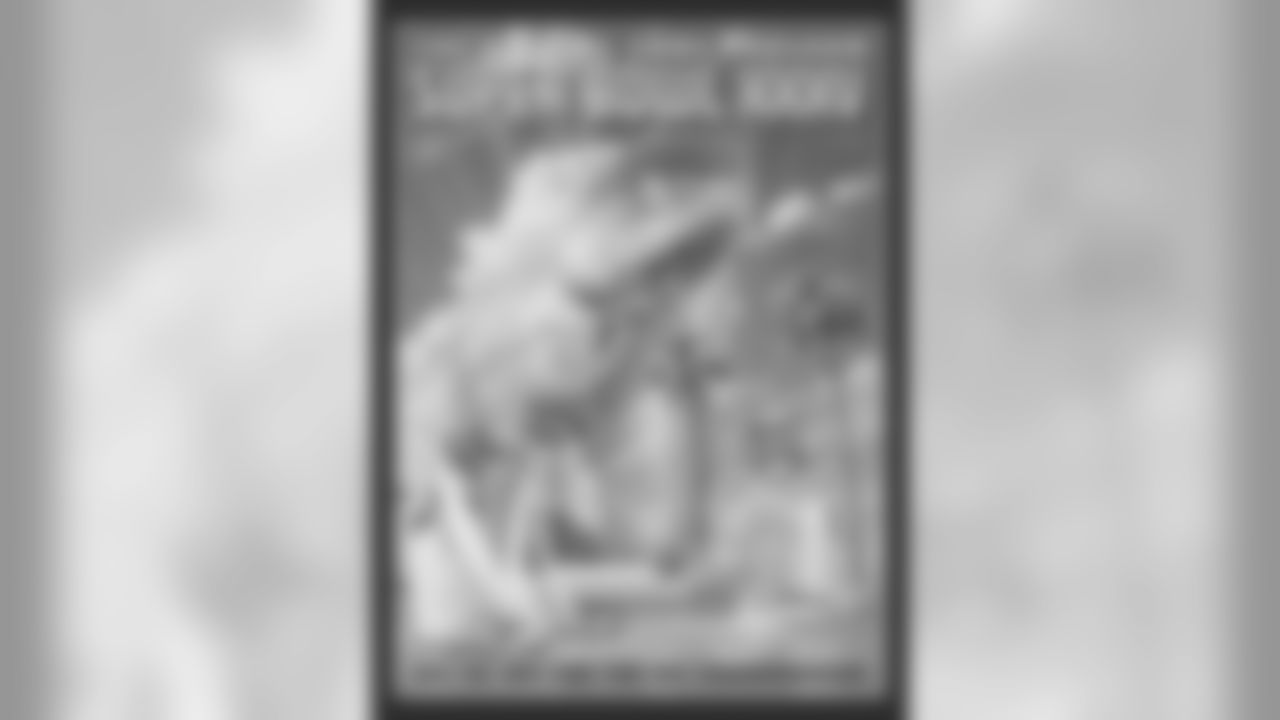
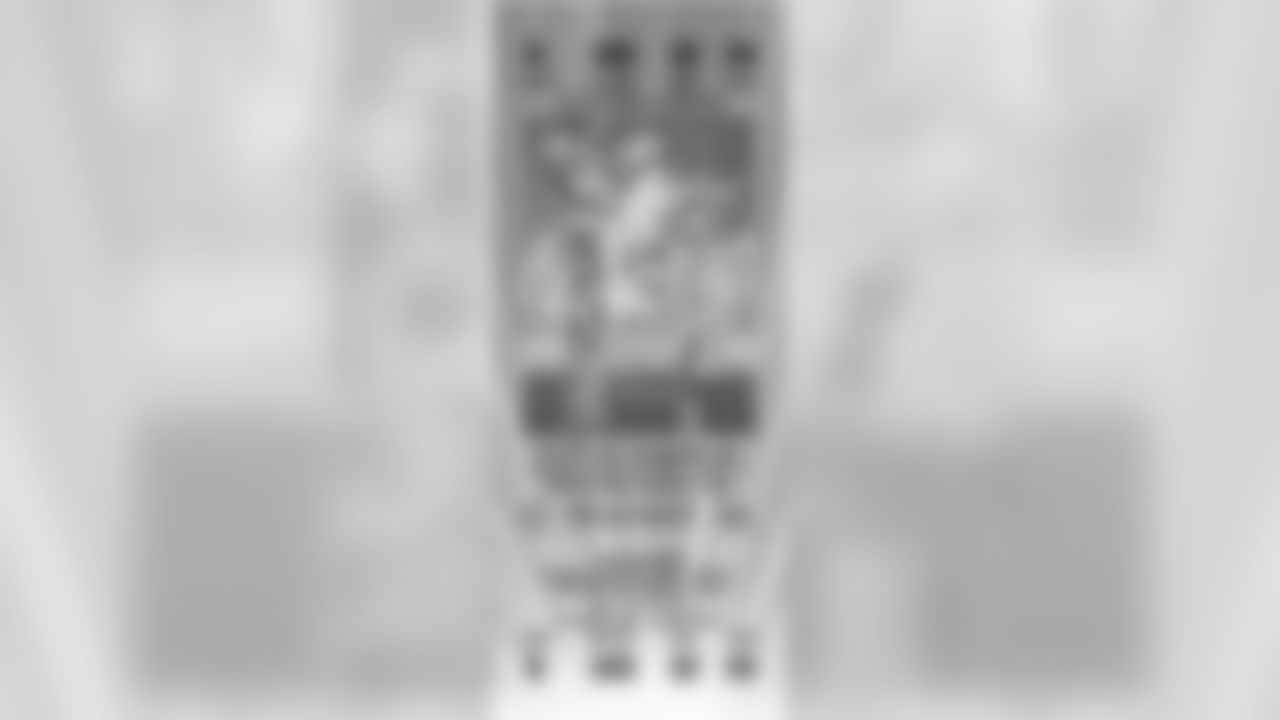


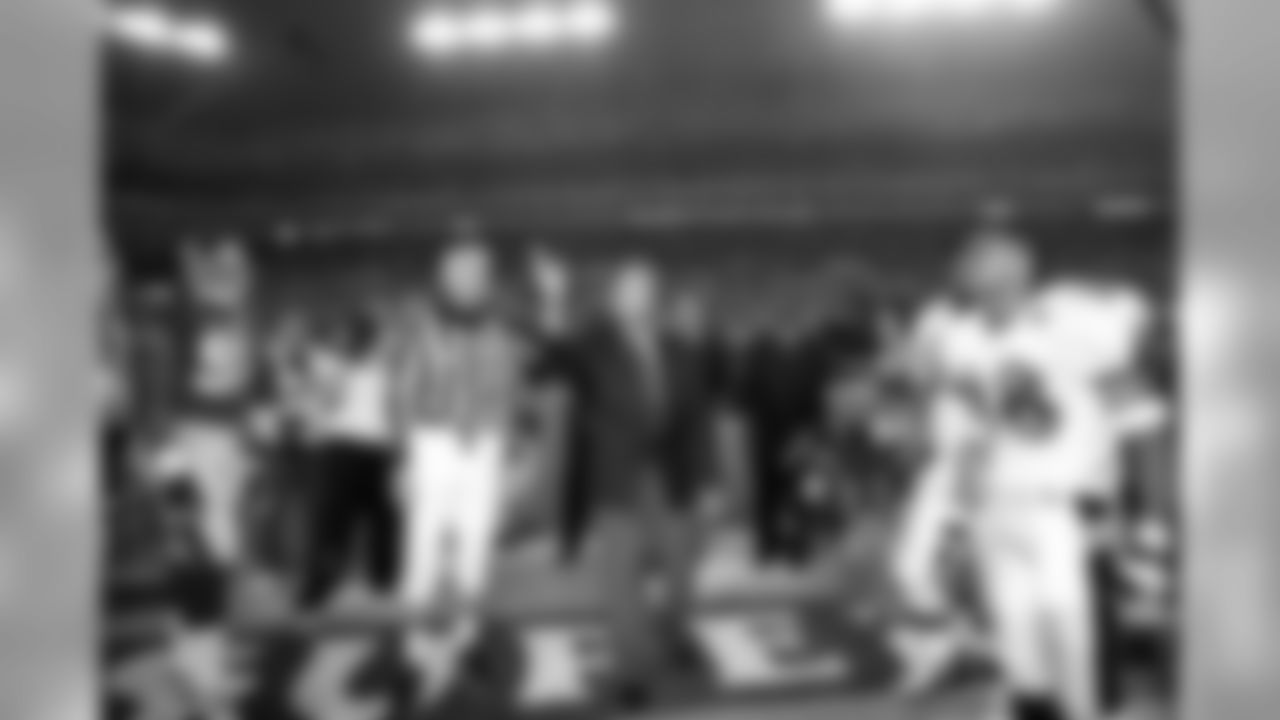
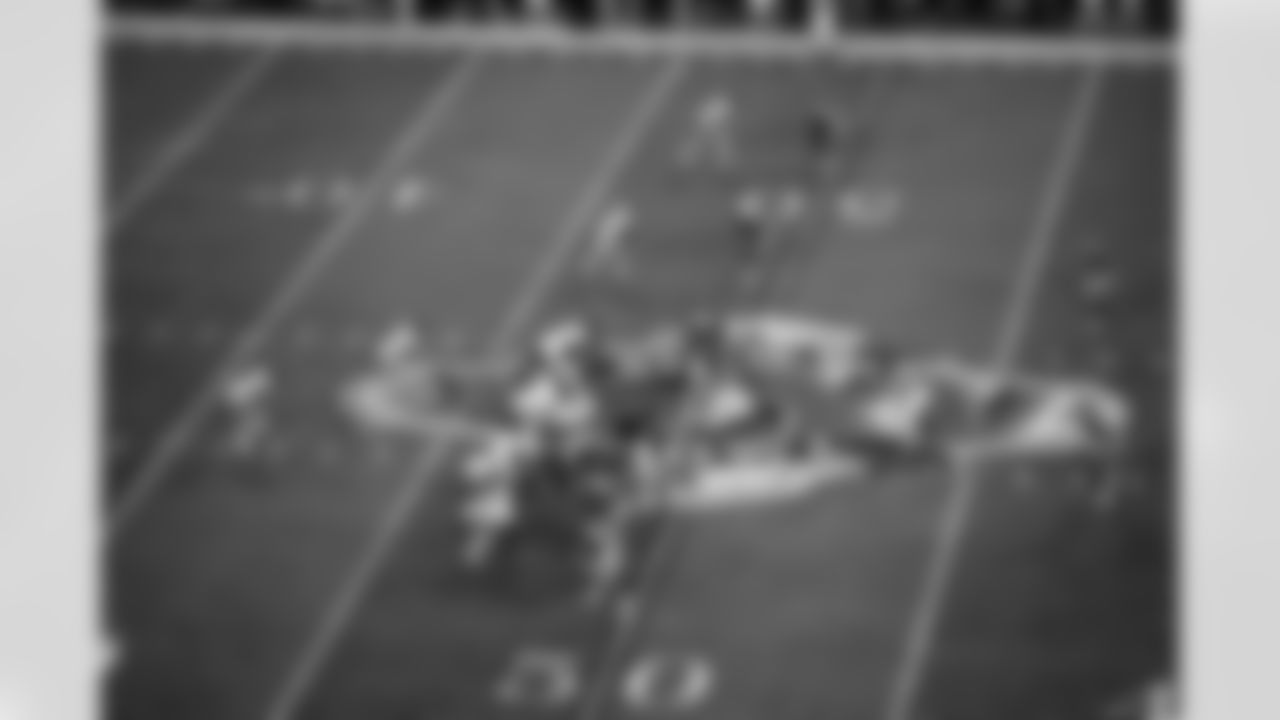
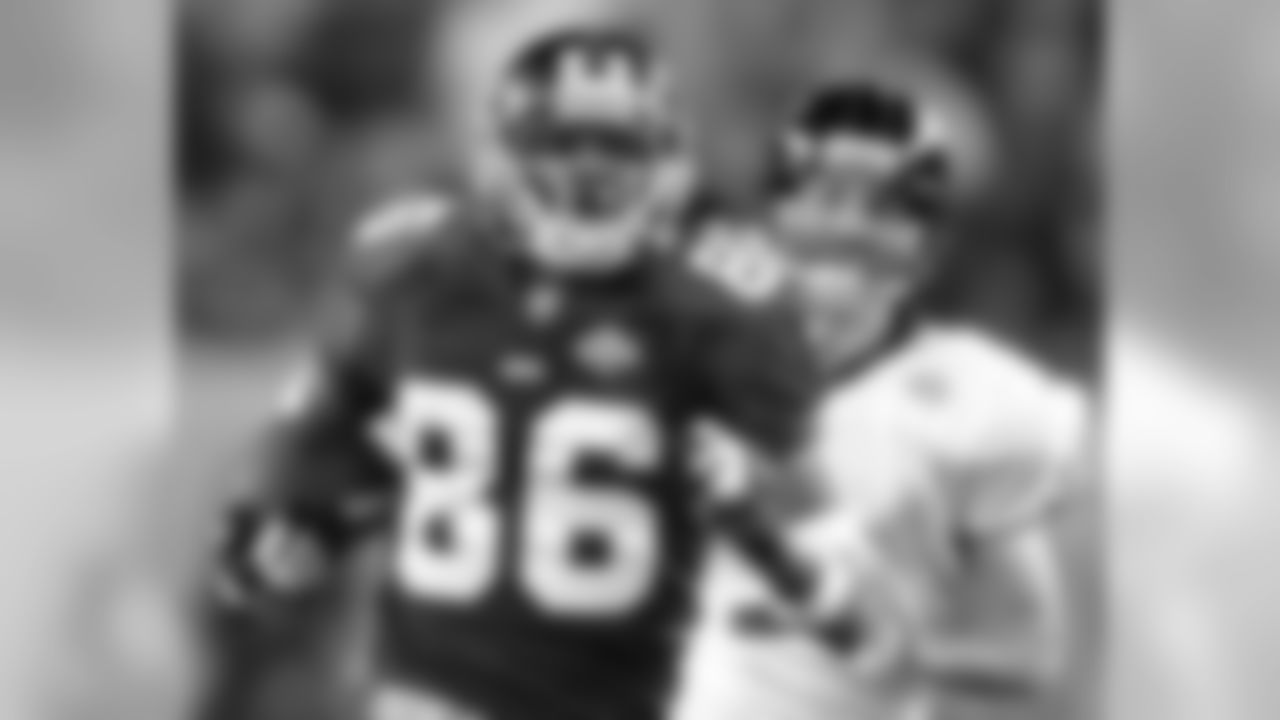
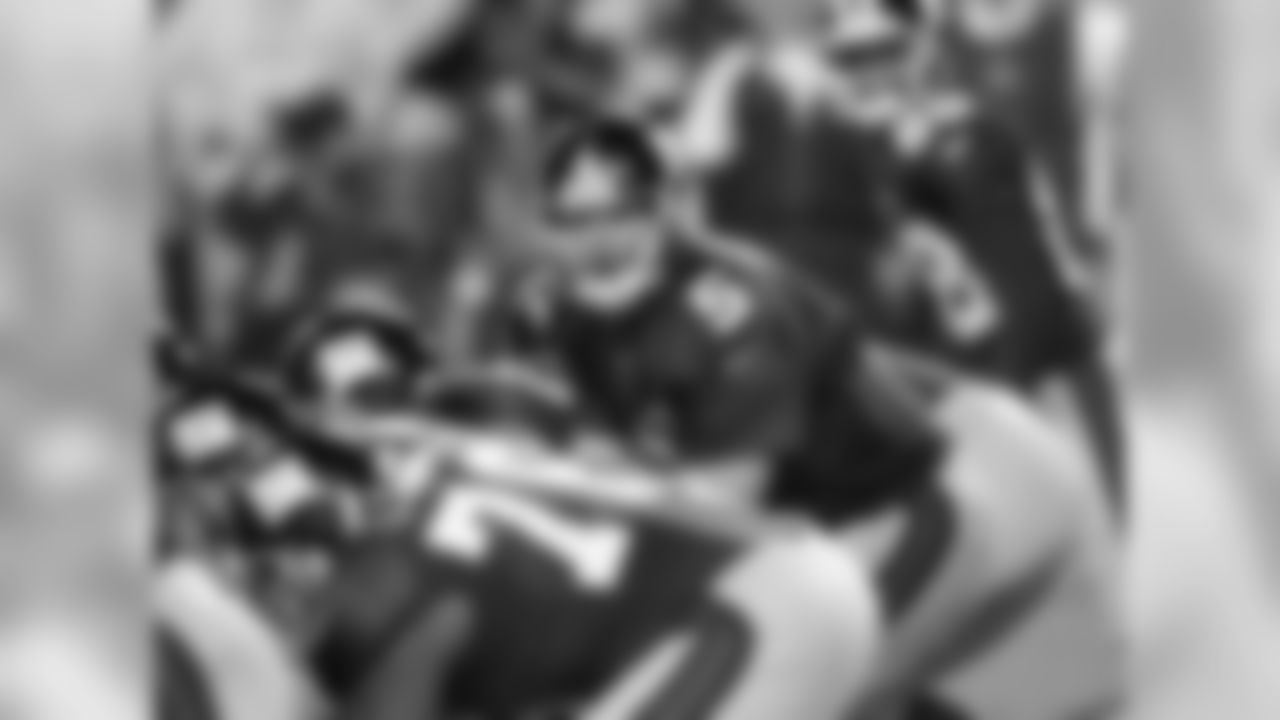
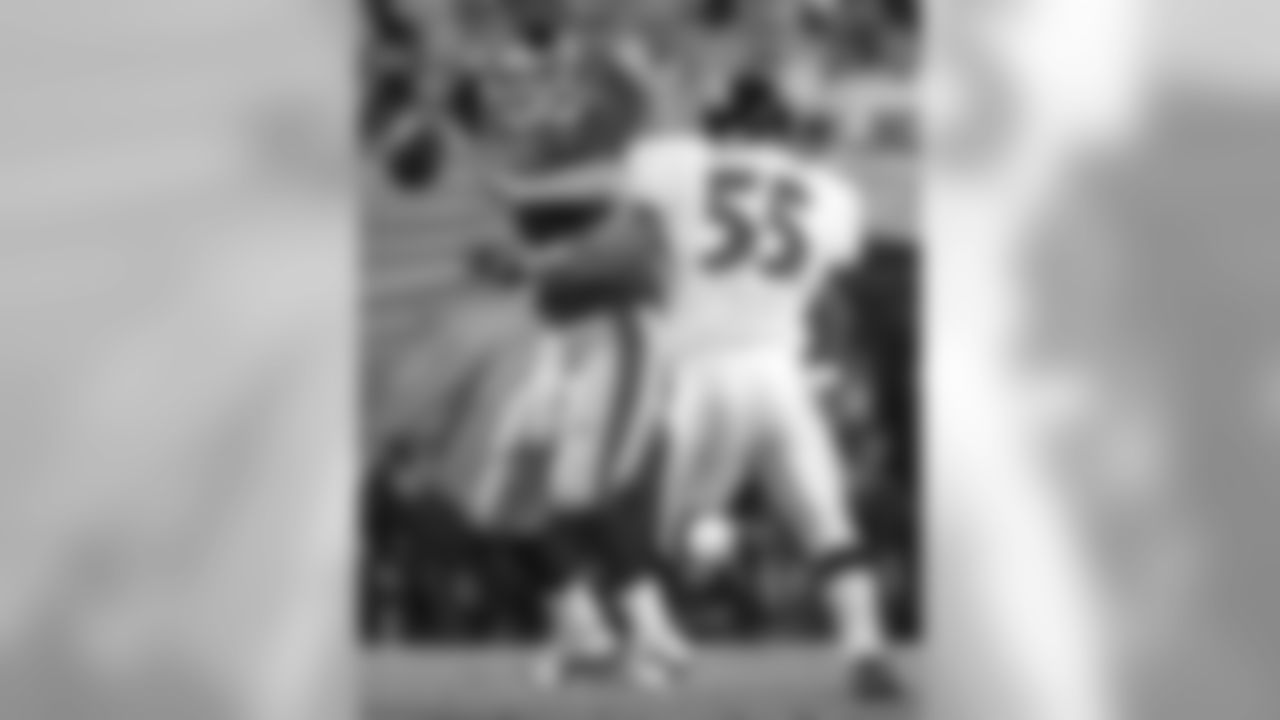
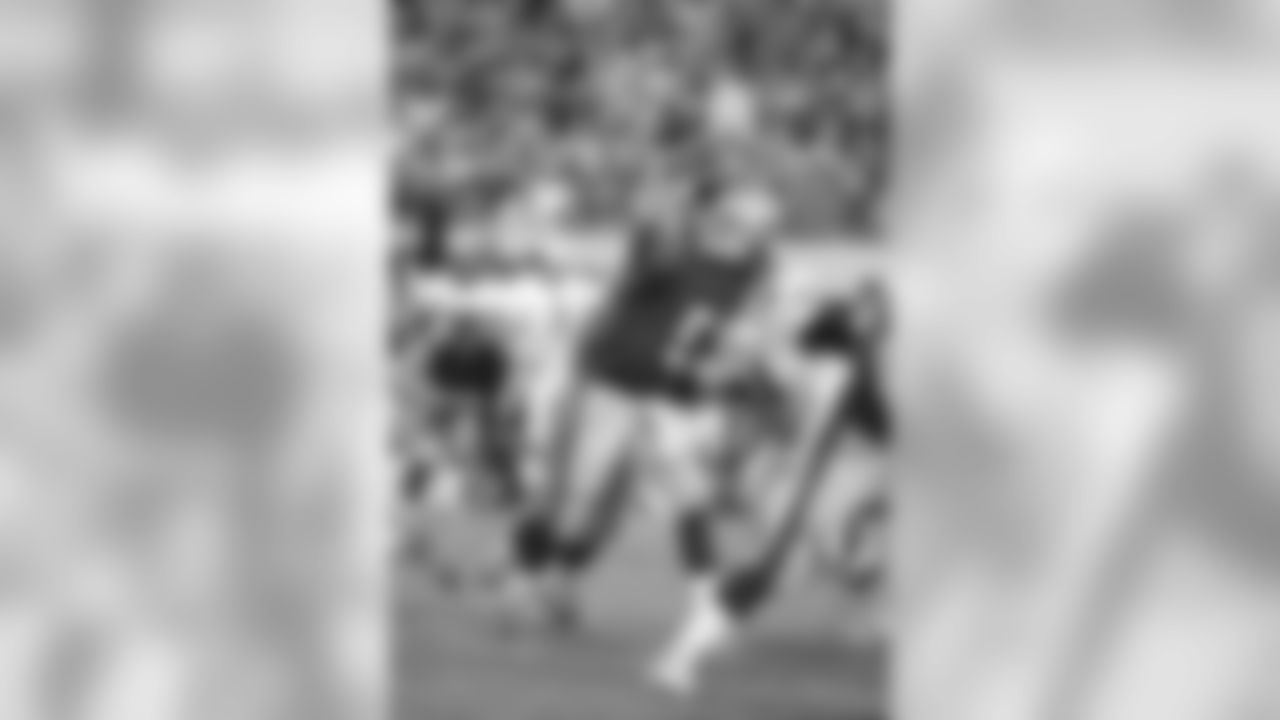
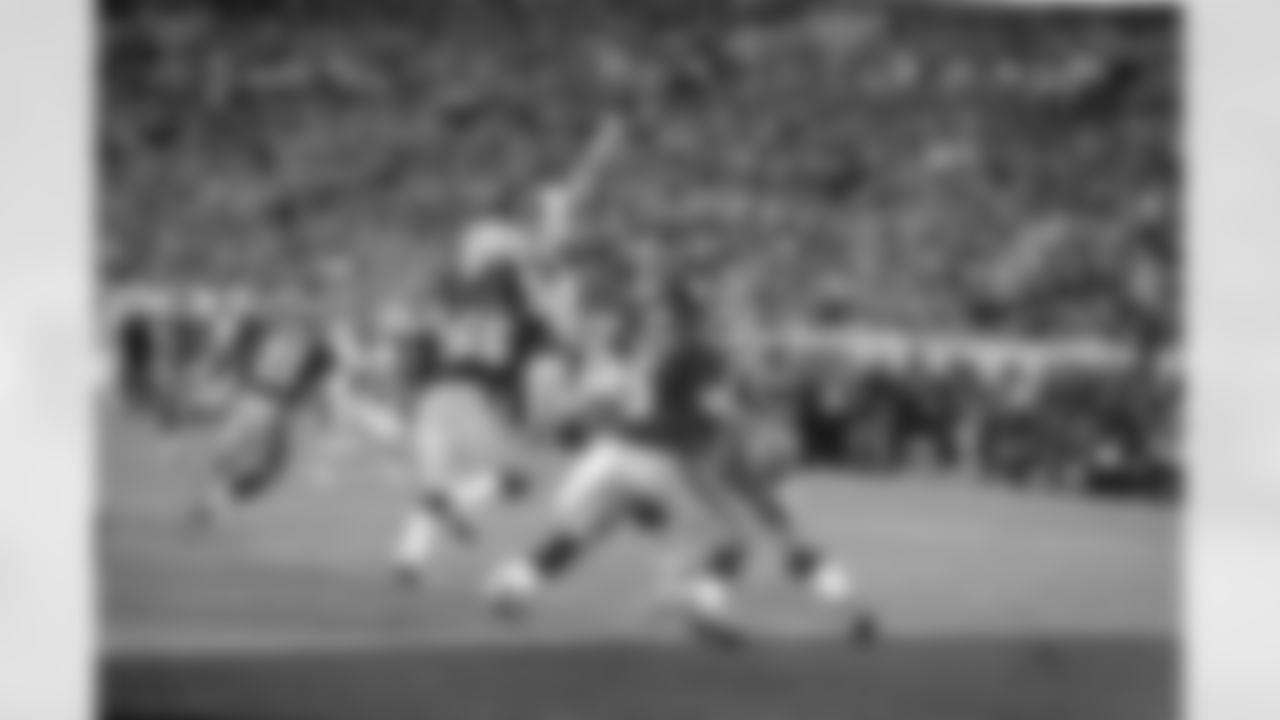
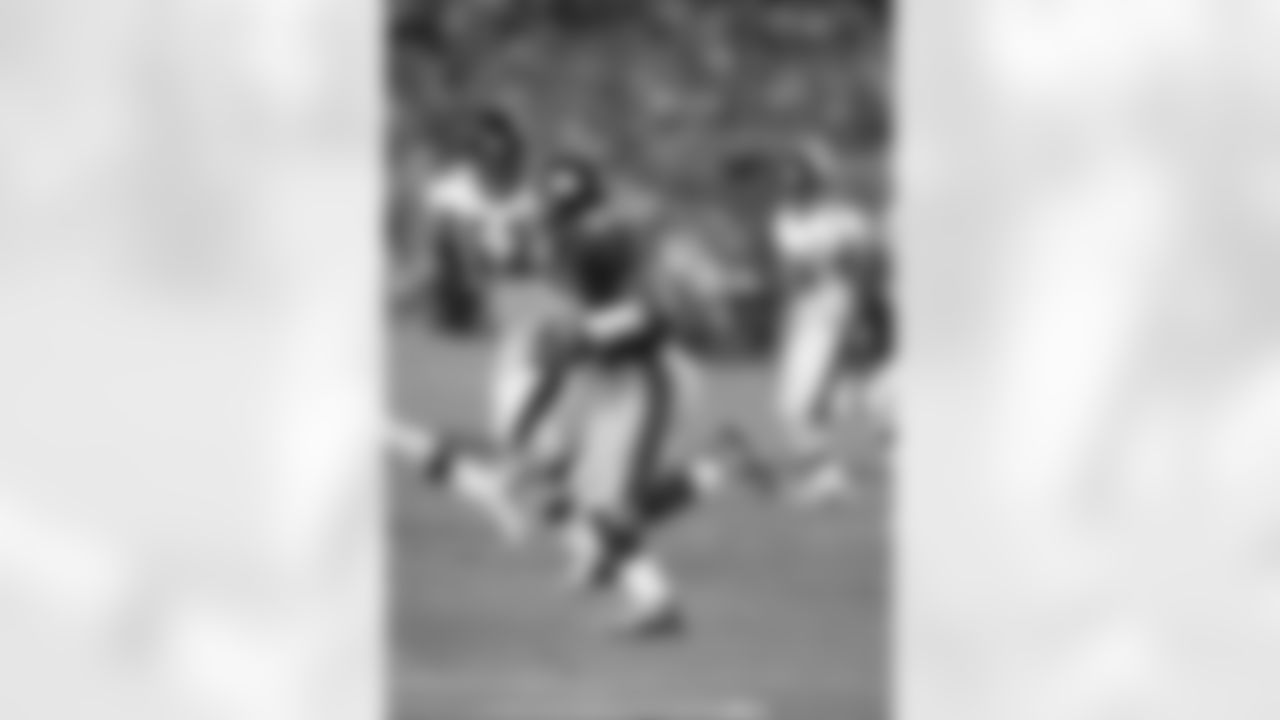
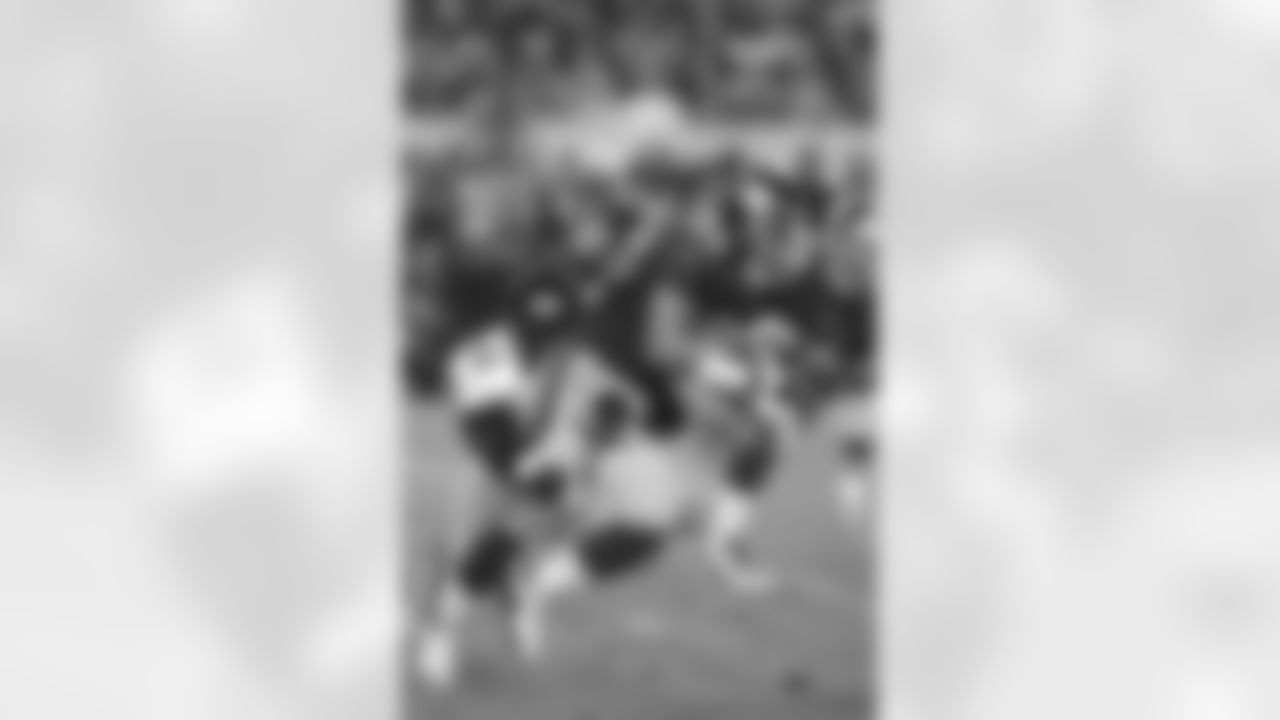
After leaving Baltimore, Fassel spent two seasons as an NFL game analyst for Westwood One radio. But coaching was still in his blood. So in 2009, he took over as head of football operations for the Locomotives of the UFL, a fledgling four-team league.
"We won the first two championships, we were in the championship game all three years and then the last year we were undefeated," Fassel said. "We had a good team. And I loved it, I loved that. It was a lot easier than being a head coach in the NFL." The league ceased operations in 2012.
Like his professional career, Fassel's personal life has had its peaks and valleys, but now is a source of tremendous happiness in his life.
Kitty and Jim were married on Jan. 8, 1971. To friends and family, they were a happy and loving couple. But over time, minor disagreements became deep chasms and they divorced in 2006.
"I was very intense about coaching and Kitty was very intense about raising the kids," Fassel said. "We found out that we don't have anything in common and then when you don't have anything in common every fight just escalates."
Neither Jim nor Kitty was happy with the split. After what was essentially a cooling-off period, they began to spend time together. When the dialogue returned, so did the warmth and love they had enjoyed for more than three decades. Fassel's sister and brother-in-law invited them to spend a weekend together in Mexico.
"We spent a week with them and had a good time together and that was kind of a catapult," Fassel said. "It just kind of came together naturally. We didn't have to sit down, I don't want you to do this or you have to do this for me or anything like that. We've covered all of the bases you can in a married life.
"Our family is very tight, very tight. In my mind, I wanted to bring everybody back together. Kitty talked to me about it and we just started spending some time together. Now things that we might have a big argument about, it's nothing. I'm much more relaxed and so is she. So it is good, it is really good. You go back in your life and you think, 'What do I want to do?' We're happier than ever."
And Fassel insists that won't change if he never gets a chance to coach another football game. He is proud of what he accomplished in his career, particularly with the Giants, and doesn't need to stand on another NFL sidelined to validate his coaching chops.
"The Giants have a great organization," he said. "I wish I could have been there longer. I wish I could have won a Super Bowl. There are a lot of things I'd like to have been able to accomplish, but it was a great. They paid me well, I think I served them right. If you asked me what I'm most proud of, when I went into that organization it was down, really down. It had cap problems, the team needed to be re-built. We were the only team picked last in our division, and in the first four years we won two division titles, the conference championship and went to the Super Bowl. We got beat, but we got there. So I thought that was pretty good for where we started.
"I coached a long time, a long time. Right now, Kitty and I being back together, I don't need to work. Yeah, there are times where there might be an inquiry from somebody. Not for a head coach. They'll say, 'You could get back and be a coordinator again.' I think, 'What do I need to do that for?' I was a winning head coach. I ran four successful offenses. I don't think I need to get back on that bus and ride that thing again. I enjoy watching my son coach. I enjoy being around my kids and grandkids. I'm enjoying life."




